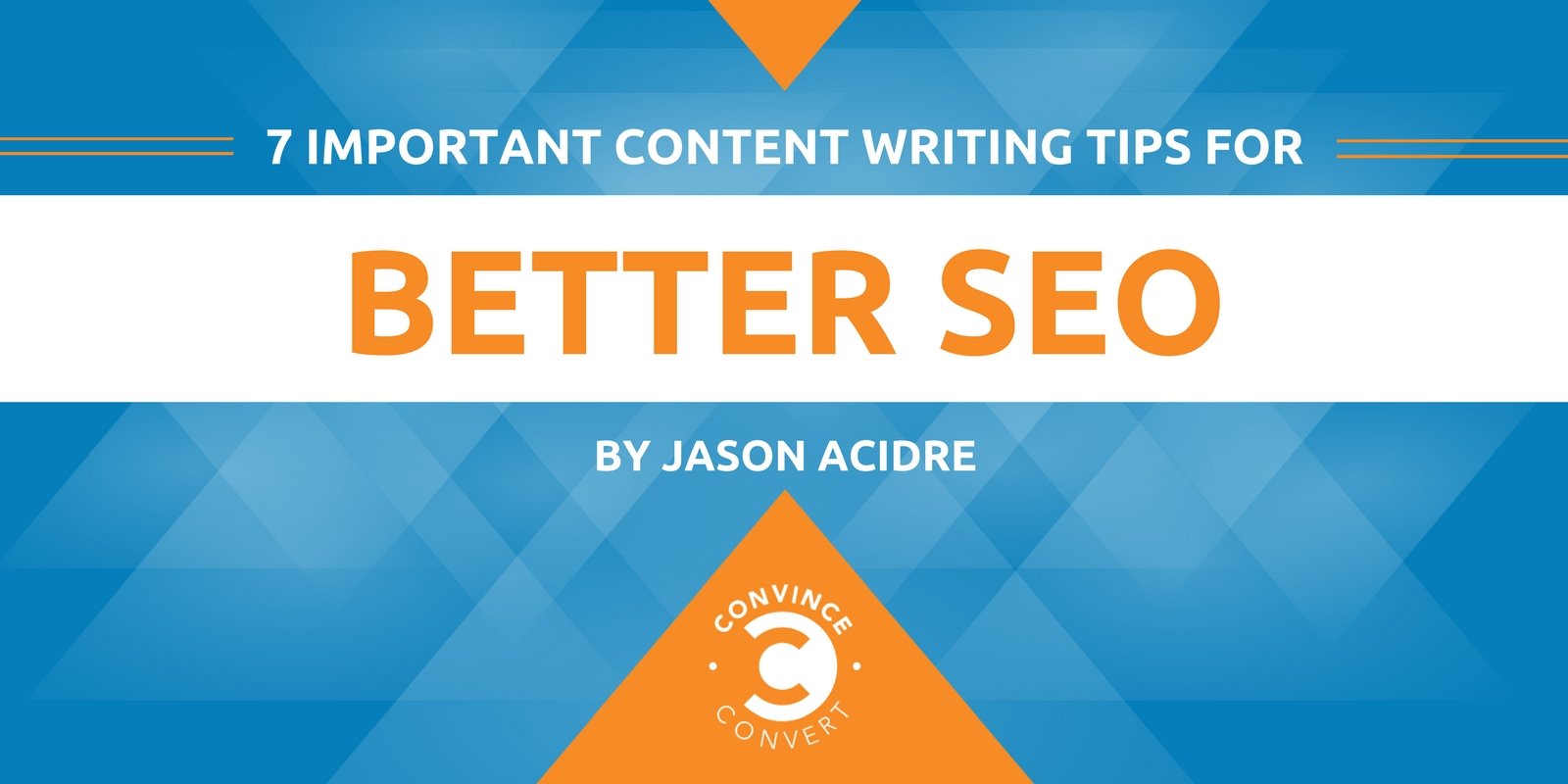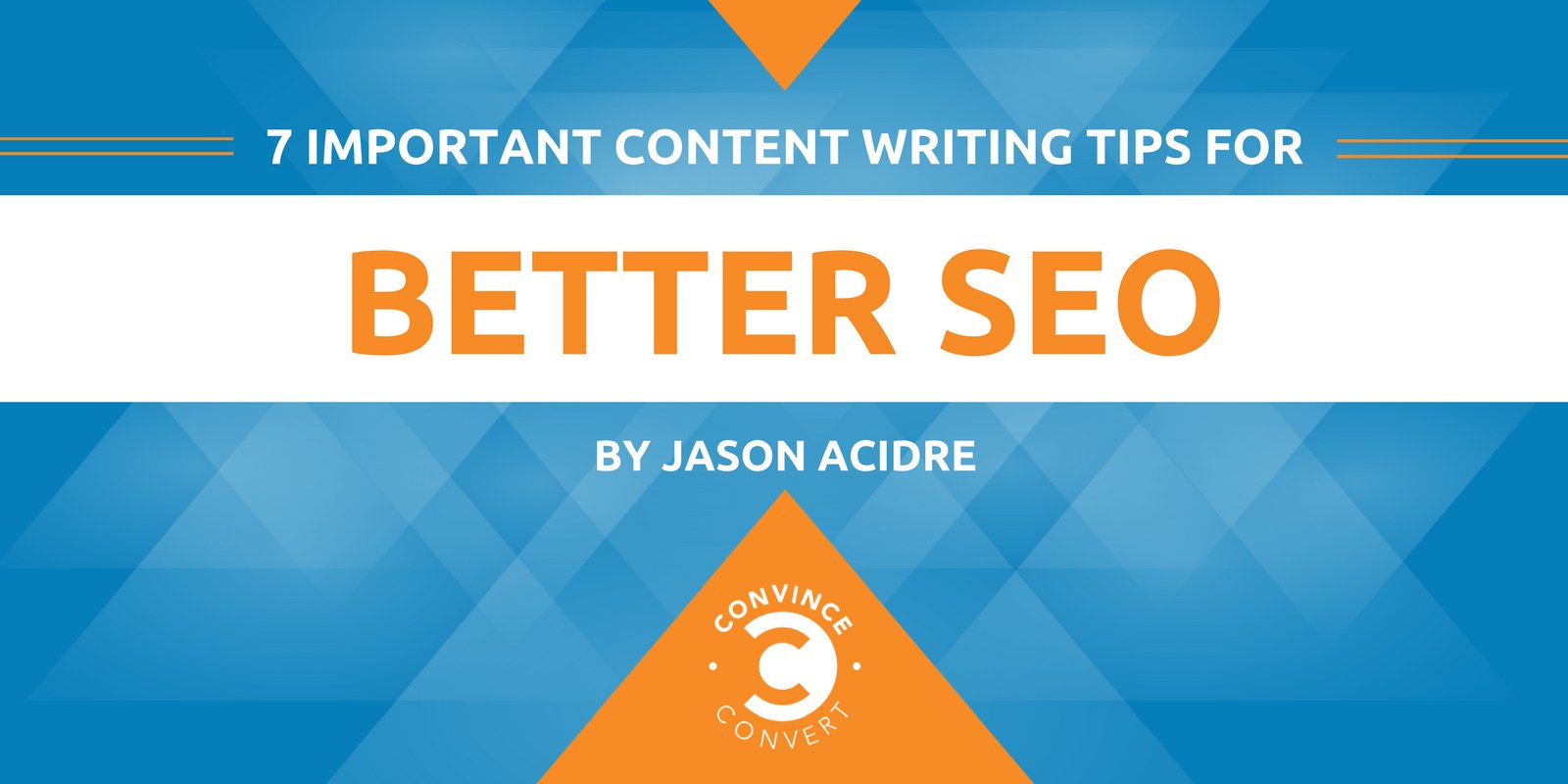7 Important Content Writing Tips for Better SEO. But in reality, content that gets highly ranked on search engines is what many marketers are still aiming to achieve. I’ve been writing about SEO and content marketing for the past six years. TF-IDF: Include terms frequently used by other competing pages ranking for your target search query. Based on many experts’ observations, below are some of the key signals Google uses to determine which pages rank first: Provide the most logical and accurate answers to these types of queries. The goal should always be to give your readers the thing they’d least expect to find in your content. I have been practicing this approach to writing ever since I started blogging back in 2010. Most of the time, we build content to get our sites ranked for our campaign’s target keywords. Building relationships with other publishers and influencers, through citing their works. The topical relevance of the linked sources can also improve your content’s relevance score to their target keywords.

SEO copywriting was certainly a legitimate service in the days when keyword stuffing and density were factors to consider in making webpages more visible in organic search. Nevertheless, great content remained the core of successful digital marketing campaigns over the years.
You might think that the old approach to creating SEO articles is a thing of the past. But in reality, content that gets highly ranked on search engines is what many marketers are still aiming to achieve. The name of the game might have changed. The methodologies and approach may have tremendously evolved as well. But the goal still remains the same.
I’ve been writing about SEO and content marketing for the past six years. Here are the eight most important lessons I’ve learned.
1. Target Multiple Keywords
Choose and focus on writing topics that can target multiple keywords. This will ensure that your content can consistently drive traffic through search.
It’s conventional wisdom for content to target a primary keyword. However, many marketers forget to maximize their content’s potential by including and targeting secondary search terms (long tails). That’s often enough to amplify its ability to attract more organic traffic in an extreme way.

Just imagine how much traffic you can get if you have dozens of pieces of content that each rank for hundreds (if not thousands) of search queries.
Use Google’s Keyword Planner to identify keyword variations (with substantial monthly search volume) you can target for your content.

Strategically place your chosen key phrases on the key areas of your content:
- Title tag
- Meta description
- Header tags (H1, H2, etc.)

From the sample above, I’ve built a piece of content (a few weeks ago for testing purposes) that mainly aims to rank for the search term “SEO Philippines.” The topic itself is very broad (and could certainly be dull). So in order to produce something that can genuinely provide useful information to its intended audience, I incorporated specific modifiers such as:
- Consultants
- Experts
- Agencies/Companies
- Blogs
- Conferences
This made the content more robust in terms of utility and depth of information, thus making it more sound for search engines to rank the page for the primary keyword it is targeting (and more likely with its other variations).
Through RankBrain, Google is now more adept at recognizing and understanding pages that target multiple related keywords.

Dmitry Dragilev did a more detailed case study of this approach and how it helped them get in the first position for a highly competitive keyword (in under three months).
2. Improve Readability
Readability has a direct impact on user engagement metrics, which is one of the most important areas that Google looks into in ranking webpages nowadays. In the last Search Ranking Factors Survey by Moz, reading level was recognized by several experts as a mid-tier ranking signal for page-level keyword-agnostic features. But many things have changed in Google’s core algorithm over the past couple of years, and user experience is playing a much bigger role now.
Tips for improving your page’s readability:
- Format your content for skim readers.
- Use shorter sentences.
- Break long paragraphs.
- Highlight the most interesting parts of your content (through effective use of subheadings, bold texts, and whitespaces).
- Use active voice.
- Use transition words to give better direction to readers.
Install Yoast SEO, if your site…

COMMENTS